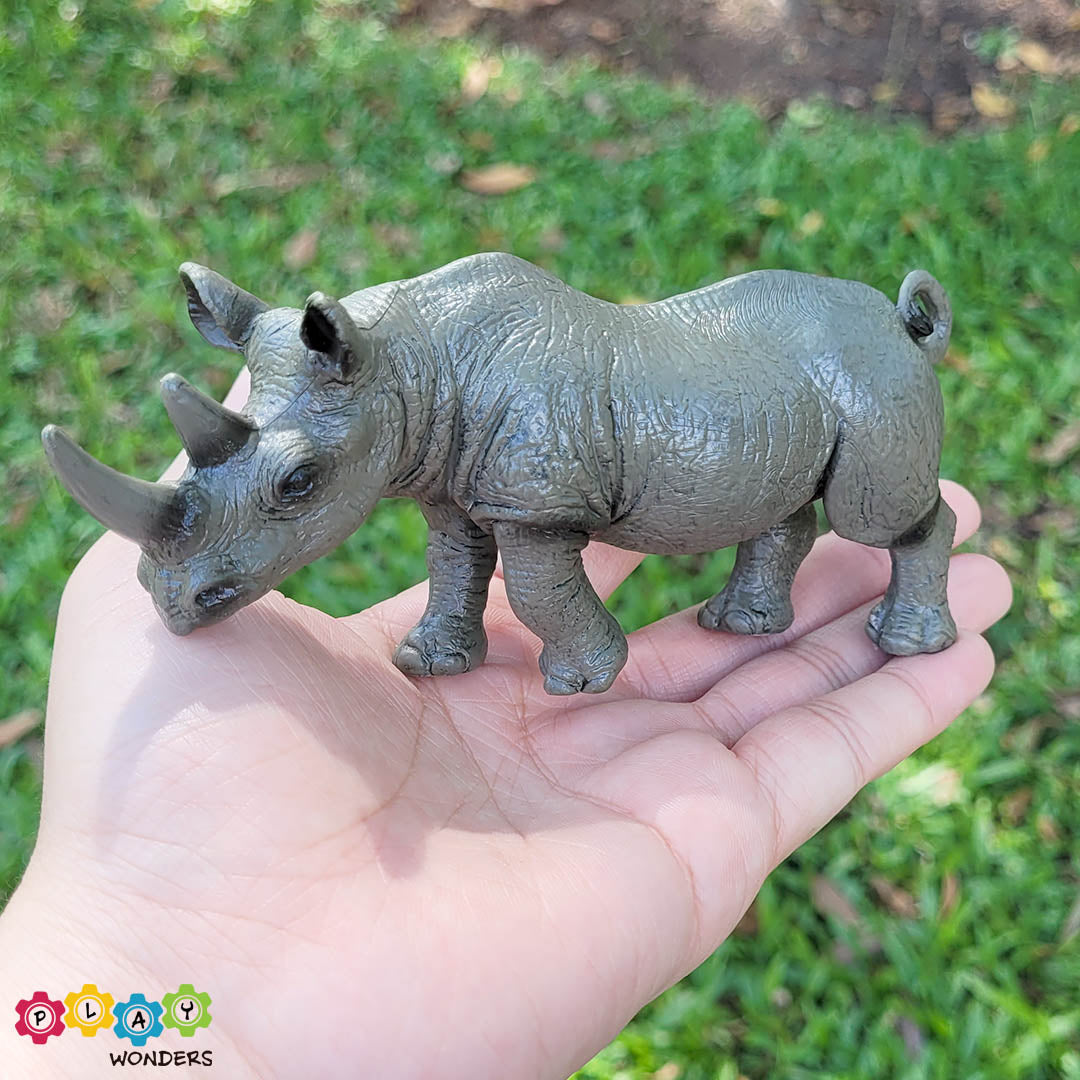Discovery Animals - Rhinoceros
Discovery Animals - Rhinoceros
Couldn't load pickup availability
Immerse yourself in the world of Discovery Animals! These realistic animal toys allow for fun pretend play while also providing an engaging way to learn about different animals. Ignite your child's curiosity and spark their imagination with these educational and entertaining toys.
Why get Discovery Animals for your child?
- Educational Value: Help children learn about different species and their features
- Encourages Imaginative Play: Inspire imaginative play, allowing children to create their own stories and adventures, which boosts creativity.
- Improves Observation Skills: By comparing the toy to real animals, children can develop better observation skills and attention to detail.
- Supports Emotional Development: Caring for a realistic animal toy can teach empathy and responsibility, as children often treat them as pets.
- Promotes Connection with Nature: These toys can foster a love for wildlife and nature, encouraging children to appreciate and protect animals.
- Diverse Options: With a variety of animals available, children can collect and learn about a wide range of species, enhancing their knowledge and interest in animals.
Additional Information
Additional Information
Dimension (Length x Width x Height)
Habitat:
Rhinoceroses are found in various habitats, depending on the species. African rhinoceroses (white and black) inhabit savannas and grasslands, while Asian rhinoceroses (Indian, Javan, and Sumatran) are found in tropical forests, swamps, and grasslands.
Characteristics:
Rhinoceroses are known for their thick, protective skin and prominent horns made of keratin. Despite their size, they can run surprisingly fast and are excellent swimmers. Rhinoceroses have poor eyesight but a strong sense of smell and hearing, which help them navigate their environment. They are generally solitary, except for mothers and calves.
Diet:
Rhinoceroses are herbivores, feeding on grasses, leaves, twigs, and shrubs. Their diet varies by species: white rhinos primarily graze on grass, while other species consume more leaves and branches.
Recommended Age
Recommended Age
- 3 years or older
Share








